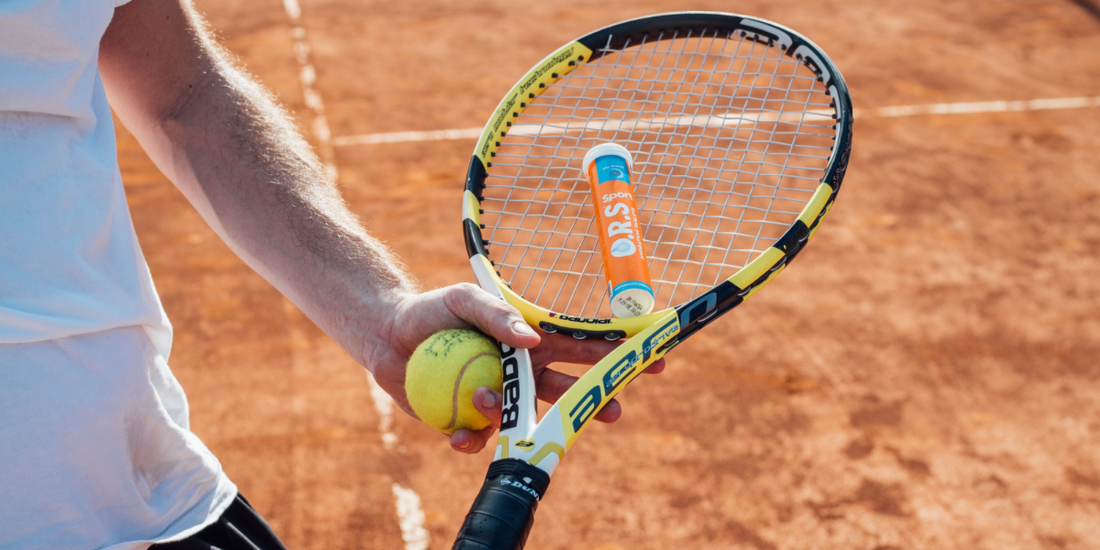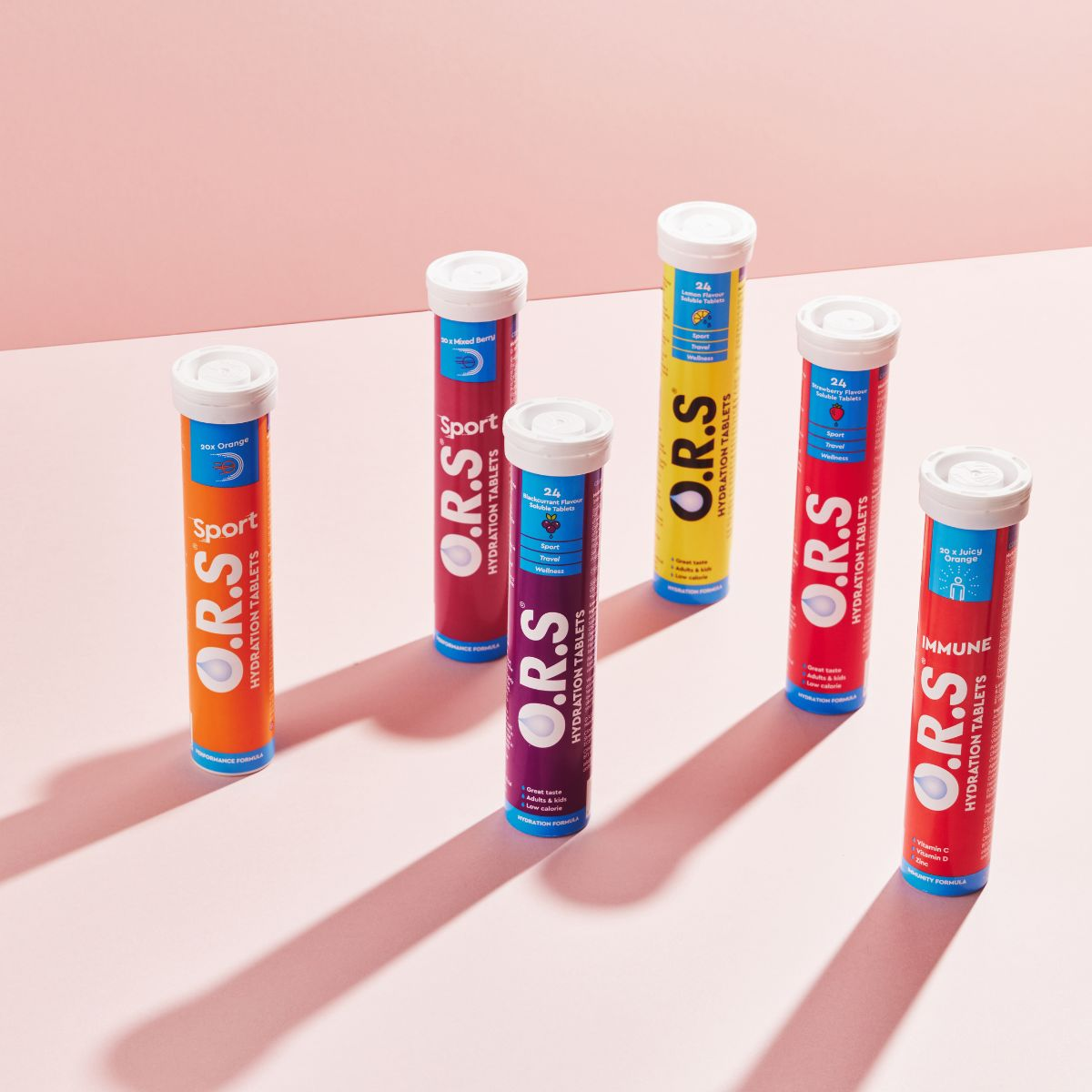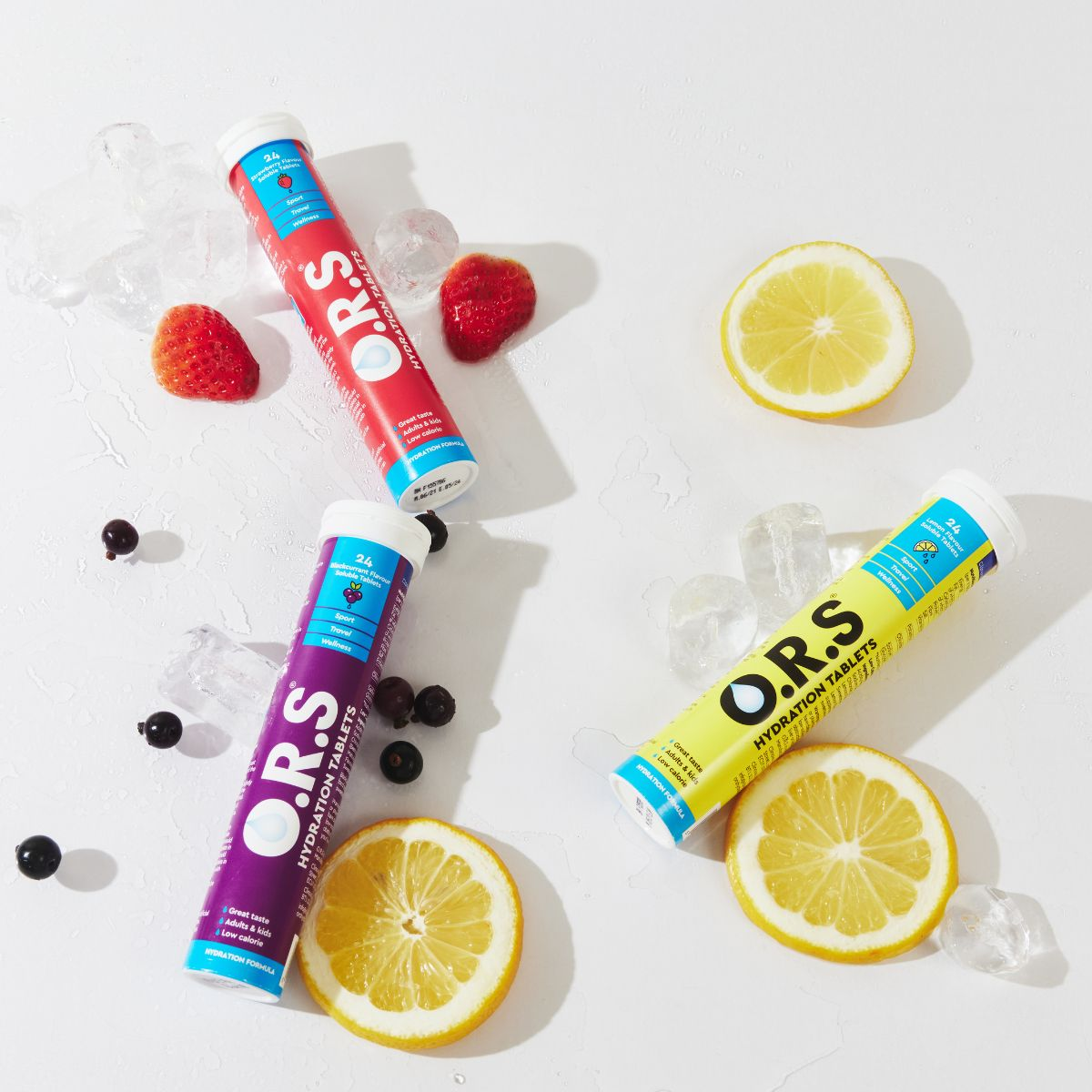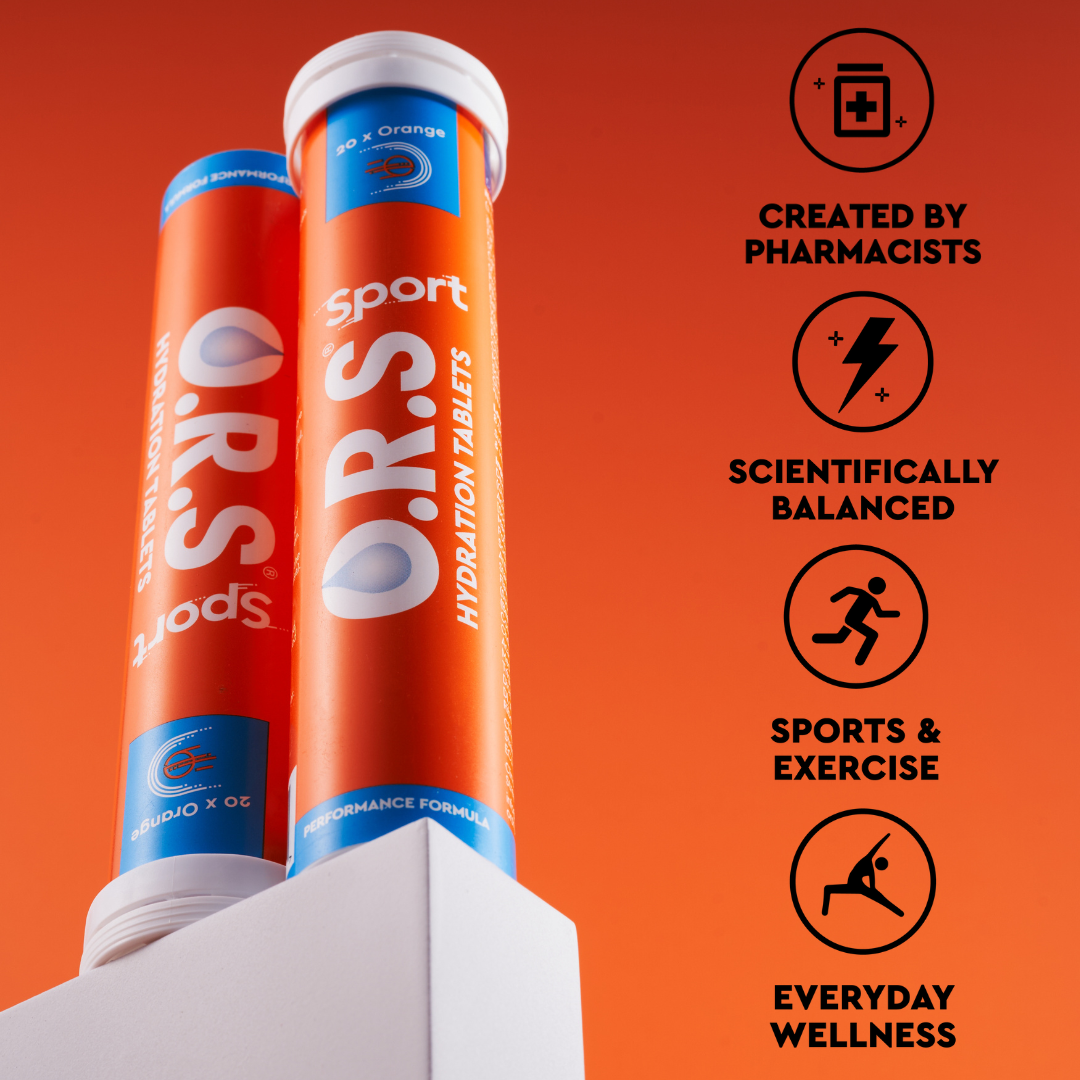
Electrolyte Replacement
Share
Electrolytes are vital for your body to work at its best. Hard work, whether it’s exercise or labour, drains your electrolyte reserves and that leads to discomfort, to a reduced ability to perform at your best and eventually to serious health risks! Replacing them is vital, and understanding how to do that effectively means understanding what they are and what they do for you.
What Are Electrolytes
‘Electrolytes’ is the collective name for a group of chemicals that your body uses to regulate its internal processes – from the smooth transmission of nerve impulses from the brain to your muscles, to your individual cells’ hydration level. Because your nerves run on tiny jolts of electricity, your body needs fluids that can conduct electricity to make sure those signals are transmitted clearly.
Salts provide that natural conductor: when salts dissolve, they split into their component ions, which makes the solution a conductor. Salts in solution are therefore known as electrolytes.
How Do You Lose Them?
You lose electrolytes whenever you exert yourself: whether it’s a workout where you really push your body to its limit, or doing some hard work around the house. That exertion heats you up, and to cool you down, your body sweats. One of the things you sweat out are electrolytes. The weather is also a factor: you might lose more electrolytes walking to the shops during a heatwave than on a run round the park in cooler weather.
That’s not the full story though: you frequently feel thirsty as a result of this effort, and we are regularly taught how important it is to remain hydrated. Unfortunately, if you’ve already depleted your electrolyte levels, and drink a litre of water, you’ve just diluted the remaining electrolytes in your body, making them less effective. If you keep drinking water without topping up your electrolyte levels, you might end up suffering from ‘water intoxication’ – essentially overdosing on H20. This is normally caused by drinking very large amounts of water in a short time, but if you allow your electrolyte levels to drop too far, it’s something you might have to worry about. As with many health and wellness issues, the important thing is to maintain a healthy balance. The side effects include nausea, diarrhoea, vomiting and confusion, as your body loses the ability to regulate the amount of water in its cells, and those cells start to expand – including your brain cells. Anything that causes swelling in the brain is extremely serious.
Suffering from over hydration, or low electrolyte levels is never pleasant under the best circumstances, but if it happens while you’re out of the house – on a long bike ride, for example – and you’re not able to get help, it could escalate into a serious situation.
What Do Electrolytes Do For You?
Your body uses several different electrolytes for different purposes.
- Sodium controls the amount of water in your body overall, as well as the balance between water in your blood and in your cells.
- Chloride works with Sodium to maintain fluid levels as well as balancing the acidity levels in your tissue.
- Potassium regulates your heartbeat and maintains neuron transmission
- Magnesium ensures your nerves are transmitting signals correctly
- Calcium also regulates your nerve impulses, and also helps your muscles to function
- Phosphate is found within your cells and helps them to produce energy, grow and repair.
- Bicarbonate is used to regulate the acid/base levels in your body and help your cells maintain homeostasis.
If you lose them or dilute them, they work with less and less effectiveness, until you find yourself suffering headaches, dizziness and nausea or even falling unconscious.
Replacing Electrolytes
Under normal circumstances, eating a balanced diet can replace the electrolytes that you lose over the course of a day. Sodium is found in many foods – to the extent that for many cutting down on it is more of a priority than replacing it – for example, fruit and vegetables are a good source of potassium, notably bananas! Long periods of hot weather, or extended periods of intense exercise (training for a marathon for example) are not normal circumstances, at times like these you need to put some real thought into replacing your electrolytes if you’re going to remain healthy.
There are plenty of isotonic sports drinks that promise not merely hydration but complete restoration of the electrolytes your body needs. These drinks are also often stocked with glucose – a sugar that gives you a quick burst of energy but isn’t always the best thing for your health.
O.R.S. hydration tablets dissolve quickly in water, and offer a low-calorie solution to the problem of electrolyte replacement. Based on the World Health Organisation formula for rehydration they provide everything your body needs to get back to peak performance, whether you’re training for athletic excellence or suffering in a heatwave.







